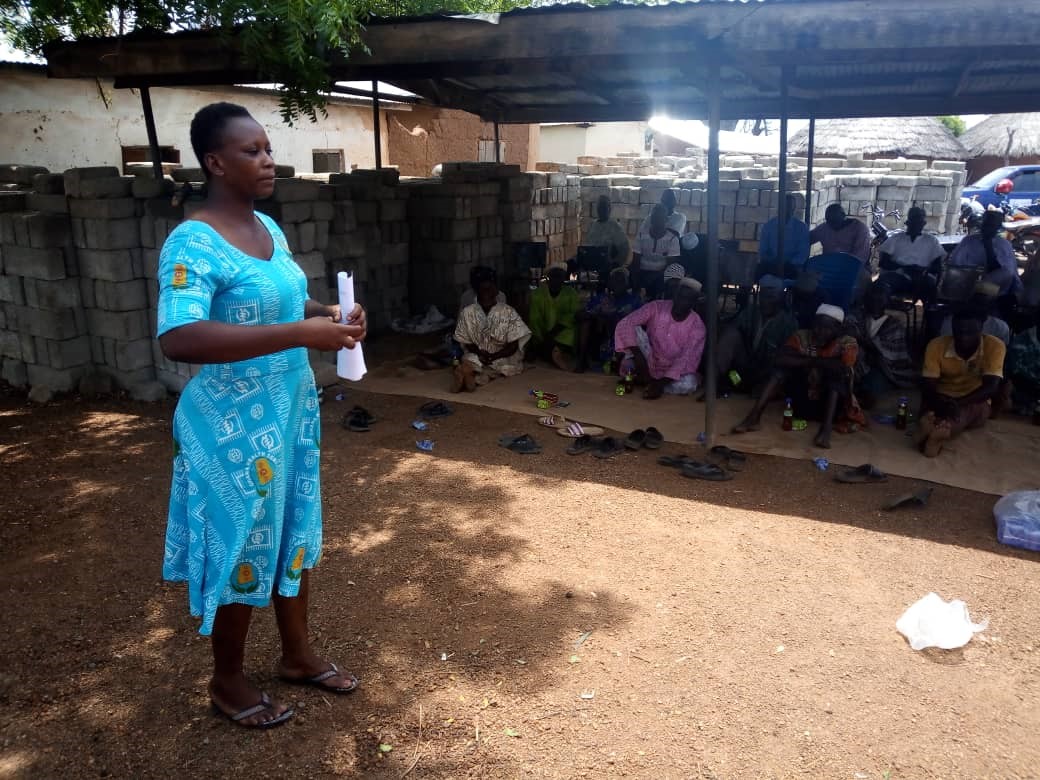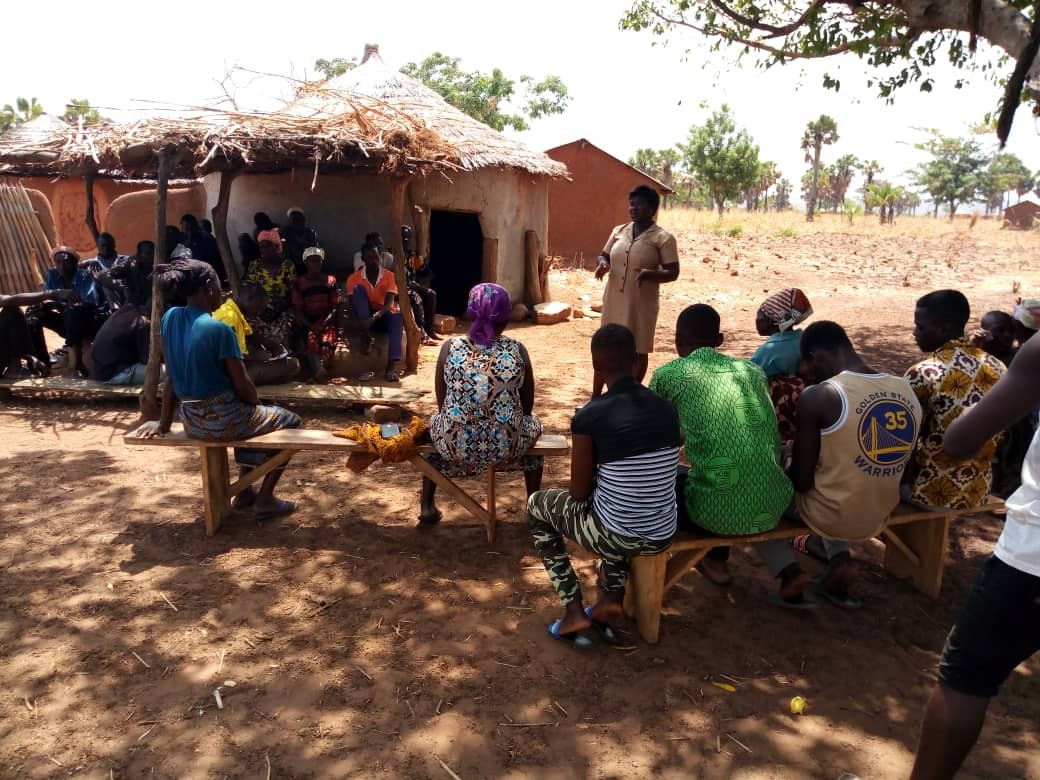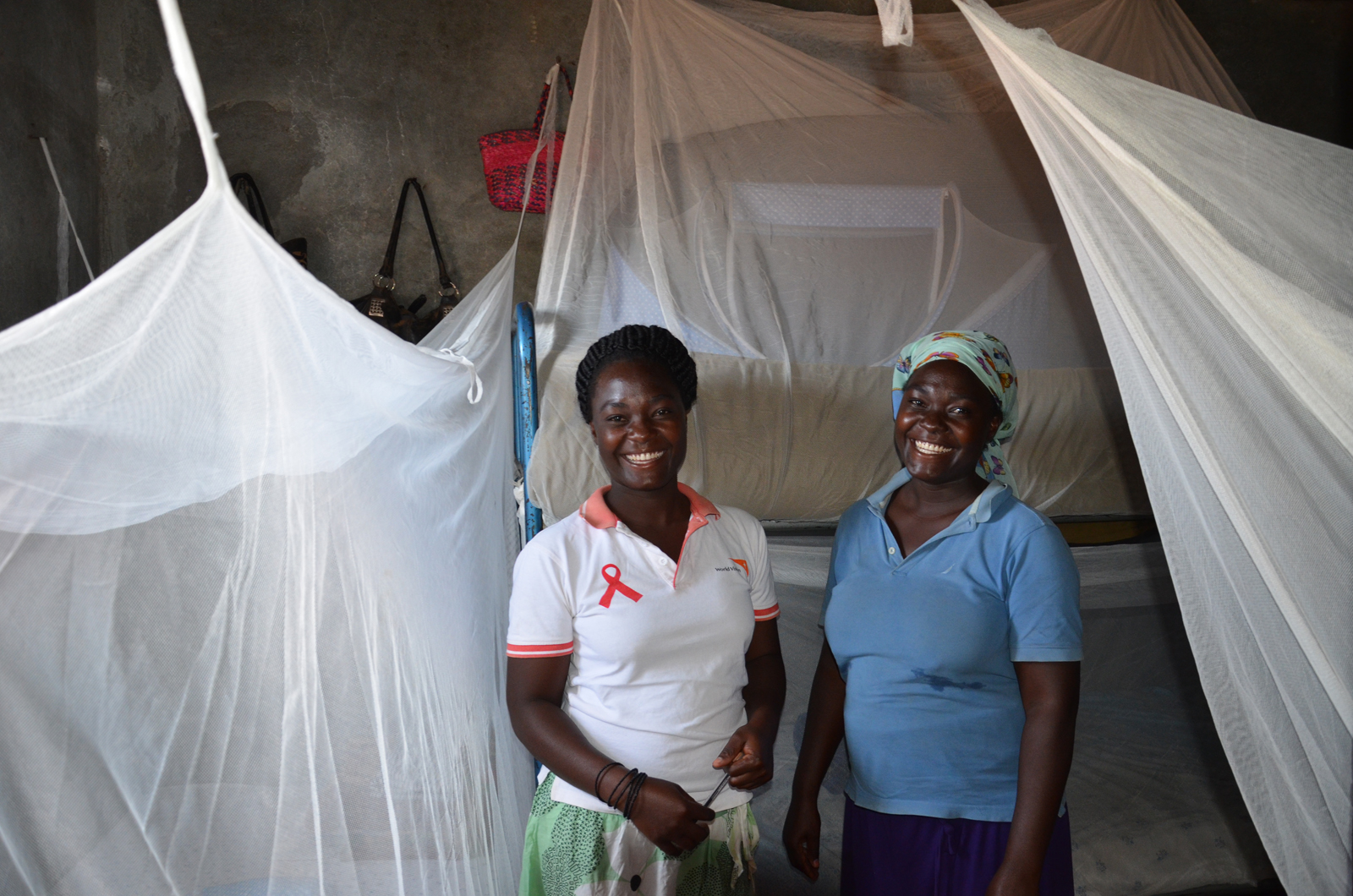PMI VectorLink Ghana helps integrate IRS education into government-based health promotion campaigns.
Implementing health interventions can prove challenging in countries where a lack of resources poses limitations on what governments can do to help keep communities healthy. Working across 23 countries in sub-Saharan Africa and Cambodia, The U.S. President’s Malaria Initiative (PMI) VectorLink Project works to build the capacity of country governments to plan and implement safe, cost-effective vector control interventions to reduce the burden of malaria.

Building capacity involves close collaboration with a country’s government and requires an in-depth understanding of a country’s unique health context. Working with Ghana’s Health Service (GHS), PMI VectorLink established the importance of IRS as a life-saving intervention and helped gain its acceptance in communities. To do this, VectorLink Ghana helped GHS, the national entity responsible for health promotion in the country, to integrate IRS messaging into their routine government health promotion activities in districts where IRS is conducted. VectorLink Ghana trained community health nurses (CHNs) from each of the project’s 25 operational sites on key messaging around IRS as key to malaria prevention. These messages served to promote the importance and benefit of the intervention, dispel myths and allay concerns about the IRS process, and to help prepare households appropriately to receive IRS on the day of spray.
Community health nurses in Ghana are at the foundation of the health promotion structure. CHNs routinely educate villages and communities on how to adopt healthy behaviors and encourage them to accept health interventions. After their training, the community health nurses were invited to experience an IRS campaign firsthand to understand the effect of their messaging on the community’s acceptance and readiness for spray. During the campaign, CHNs were able to answer questions and reduce the number of IRS refusals on the spot.

According to Ghana Health Service records, 46 of the PMI VectorLink-trained community health nurses conducted 920 IRS-related community engagement campaigns in March and April 2019. Half of the outreach was conducted in the communities while the other half was conducted in health facilities. In the 398 communities where the IRS promotion activities occurred, the average spray acceptance increased to 99.9% compared to 93.2% the previous year.


